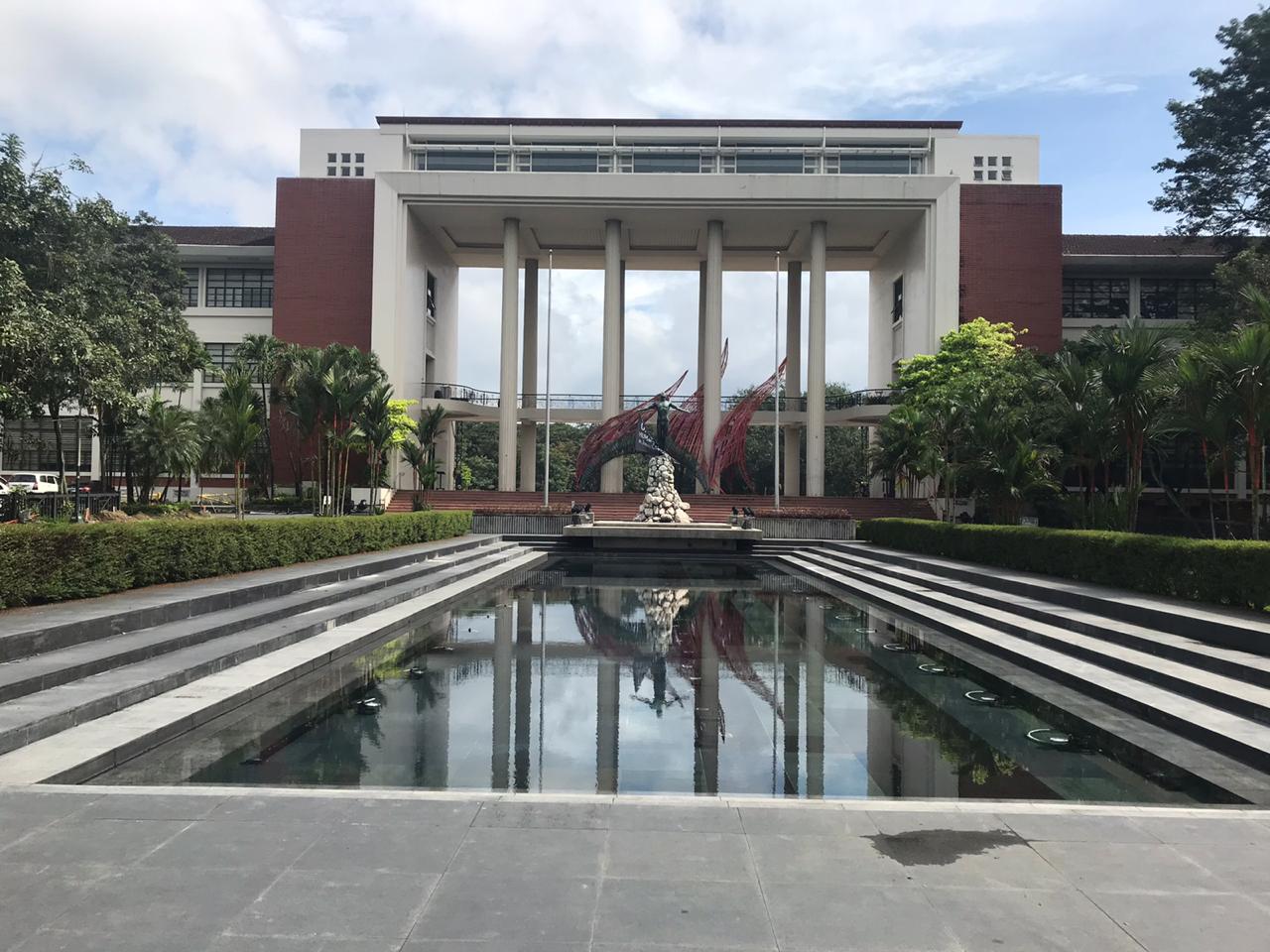
Facade of the University of the Philippines in Diliman, Quezon City. Photo by Evangeline Valderrama
The flagship campus of the University of the Philippines (UP) has released the initial guidelines on limited in-person class activities, signaling a gradual reopening for the country’s premiere university after more than a year of remote learning.
The 39-page document, approved by Diliman chancellor Fidel Nemenzo on Nov. 29 and published on Wednesday night, outlined guidelines for both on- and off-campus class activities for some 300 graduating students from six colleges: engineering; home economics; social work and development; music; science; and archaeological studies.
The university prioritized the students in these colleges as they depend on laboratory, field or studio work to finish their thesis or dissertation.
“With this initial prioritization scheme, we can ensure that participating students are able to maintain physical or social distance in our spaces. Other students who are not on the priority list should continue with remote learning,” the university said.
So far, Diliman is the first of the university’s eight constituent campuses to draft and approve guidelines for physical class activities.
The salient points in the document include the requirement that students be 20 years old and above, in compliance with the Commission on Higher Education and the Department of Health’s joint memorandum on the gradual reopening of physical classes.
Not compulsory
Participation in in-person classes is also not compulsory, and students can defer completion of class requirements that need their physical attendance.
Those who will take part in the activities, however, must be fully vaccinated and have a Philippine Health Insurance Corp. or equivalent medical insurance to cover COVID-19 expenses and other medical emergencies.
They must also produce a negative swab test no later than three days before an approved physical class activity.
As for the colleges, they are expected to ensure proper ventilation of research laboratories, studios and other facilities where students will be doing their work.
Depending on building configurations, they can determine the number of maximum students allowed per day and implement shifting schedules.
For field work and community immersions, units must accomplish a community risk assessment form and consult with the local government first.
Should students or faculty develop COVID-like symptoms, they must report immediately to the university’s public health unit for assessment.
Those who test positive will be referred to Silungang Molave for isolation and monitoring (for mild symptoms), or tertiary hospitals (for moderate to severe symptoms). Contact tracing must commence soon after.